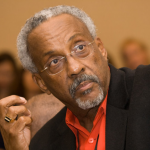Do you want to be a transformative leader? Start with noticing the times when being on automatic hasn’t worked for you and know that whatever you did or didn’t do was core to your lack of success.
BY MICHAEL F. BROOM, Ph.D. | CEO, Center for Human Systems
We all have the enormous power of choice, though we use it sparingly. Exceptional leaders access this power much more frequently. A pivotal strength of effective leadership lies in the mastery of conscious choice.
Most of us drift through the myriad choices of daily life on autopilot, opting for expedience and convenience. For most of us, that is sufficient. Our habitual reactions, steeped in past experiences, serve us well in familiar daily life scenarios.
The art of choosing with intention rather than on autopilot enables leaders with the agility to navigate the ever-shifting dynamics of leading human beings with all of their vagaries. Leadership, especially transformative leadership, demands more than replaying old scripts.
Automatic responses, when left unchecked, can spawn unforeseen and undesirable outcomes. Trapped in this automation, we often blame and complain, conveniently overlooking how our unexamined choices set the stage for these results.
This denial of responsibility effectively closes our eyes to the power of choice inherent in all of us. Leaders can ill afford such blindness.
Consider my journey while leading a small non-profit. A staff member defied my explicit instructions on a crucial task. Intent on straightening him out, we had a conversation.
He was unrepentant. My frustration grew to the point that I fired him on the spot — a stark contradiction to my original intent. My immediate and automatic rationalization was common: “He made me do that!”
Such reasoning is seductive but casts us as helpless victims of others and our own emotions. We absolve ourselves of accountability for our actions and words as we disempower ourselves.
Imagine, instead, if I had maintained some semblance of the power of conscious choice. Fueled by curiosity and openness to his perspective, rather than fixating on his error, I possibly have swayed him to be more open to my point of view.
Maybe, maybe not. Regardless, it could have increased the chances of retaining a valuable team member compared to the finality of termination. The experience of being heard has tremendous power and frequently inspires others to listen as well.
Do you want to be a transformative leader? Start with noticing the times when being on automatic hasn’t worked for you and know that whatever you did or didn’t do was core to your lack of success. Recognizing those choice points is where you must start.
Try noticing how many things you do and say automatically. Do you brush your teeth the same automatic way and get dressed the same way every morning? Do you automatically say you’re sorry for things that have nothing to do with you?
Do you automatically get defensive when someone points out that you’re wrong about something that challenged your expertise? Do you argue over and over with your kids or significant other about the same things? When you notice what you are doing isn’t working, do you do it louder and harder? That’s what some refer to as insanity.
These are all examples of automatic behaviors. There’s no need to change them at this point. It is enough to notice them — those that are useful and those that aren’t.
Acknowledging when our automatic behaviors have not taken us toward our intentions is a significant first step toward gaining the full power of conscious choice. That step will prepare you to take the next. With the power of conscious choice, replace your automatic behaviors with ones more likely to succeed.
For leaders, transitioning from being puppets of emotions and ego to architects of intentional, mindful choices is not just advisable; it’s essential. Embracing the power of conscious choice is challenging, yet its necessity in effective leadership is undeniable.
 Michael F. Broom, Ph.D., is an organizational psychologist with 45 years of experience with various people and organizations. He is the author of “The Infinite Organization” and “Power, The Infinite Game” with Donald Klein.
Michael F. Broom, Ph.D., is an organizational psychologist with 45 years of experience with various people and organizations. He is the author of “The Infinite Organization” and “Power, The Infinite Game” with Donald Klein.
Formerly of Johns Hopkins University, he founded the Center for Human Systems and is a Lifetime Achievement Award honoree of the OD Network.
Contact Dr. Broom for coaching and consulting for your organization at michael@chumans.com. For more information on the Center for Human Systems and to check out its intensive programs and two-hour workshops, visit chumans.com. You’ll be surprised by the difference a single hour can make!








